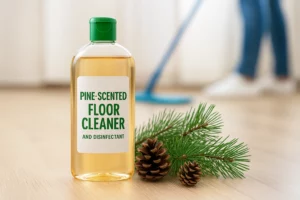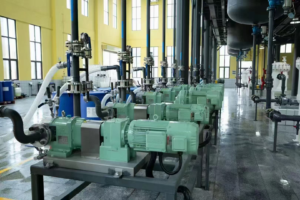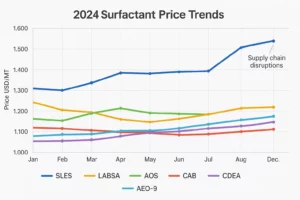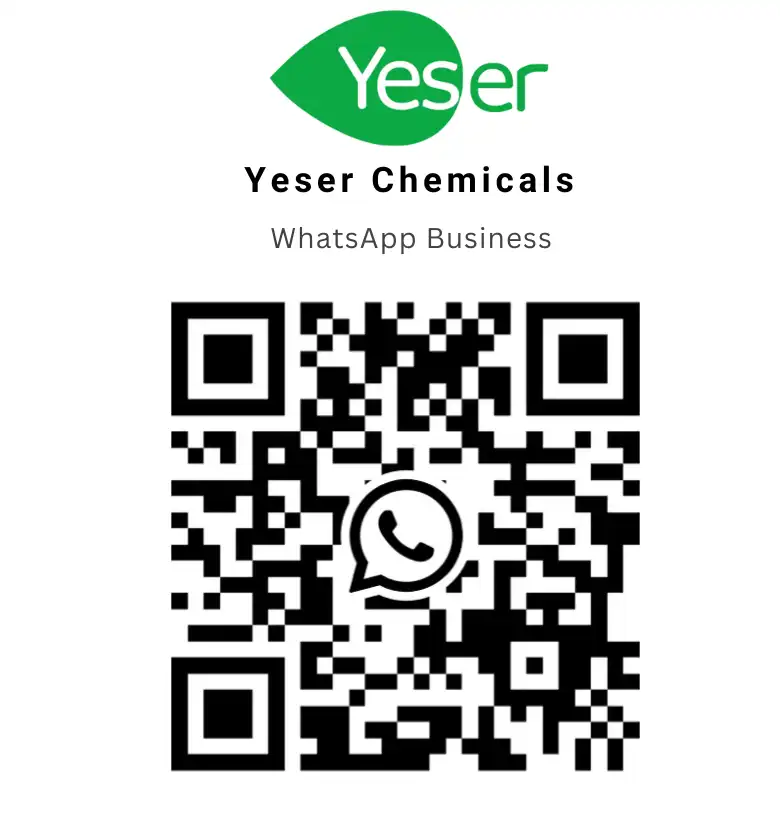In today’s market, where environmental sustainability and high performance are paramount, the need for effective and eco-friendly cleaning solutions is greater than ever. AEO-9 (Fatty Alcohol Polyoxyethylene Ether) is an innovative ingredient that meets these demands, offering superior cleaning power with minimal environmental impact. This blog explores the benefits and applications of AEO-9 in formulating eco-friendly liquid detergents, highlighting its role as a key surfactant in creating powerful yet environmentally conscious products.
To provide a comprehensive understanding of our detergent formulation process, we’ve created an in-depth YouTube video demonstration. This detailed guide walks you through each step of the formulation, from selecting the ingredients to mixing and testing the final product. The video showcases the practical application of our AEO-9 surfactant and other key components, highlighting their roles and benefits in achieving superior cleaning results.
Formula and Procedure for Making the Powful Eco-friendly Laundry Detergent Liquid
The Formulation Chart
| Phase | Ingredients | Role | Percentage (%) | Dosing weight (g) * for a 200ml batch |
| A | Deionized water | Solvent | 78.4% | 157.2g |
| EDTA-2A | Chelating Agent (binds metal ions to improve stability) | 0.2% | 0.4g | |
| Caustic soda | Alkali (neutralizes LABSA) | 0.65% | 1.3g | |
| B | LABSA 96% | Primary surfactant(foaming and cleaning) | 5% | 10g |
| SLES 70% | Primary surfactant(foaming and cleaning) | 8% | 16g | |
| CAB 35% | Secondary surfactant/ Conditioning agent | 4% | 8g | |
| AEO-9 99% | Secondary surfactant/ Degreasing agent | 1.2% | 2.4g | |
| CDEA 85% | Secondary surfactant/ Thickening&foaming enhancer | 1.5% | 3g | |
| C | Fragrance | Aroma | 0.25% | 0.5g |
| MIT & CMIT | Preservatrive | 0.10% | 0.2g | |
| NaCl | Thickening Agent | 0.70% | 1.4g | |
| Color | Appearance | — | Few drops |
Procedures
Phase A: Preparing the Base
- Add Deionized Water: Start with a clean mixing beaker. Measure and pour 153.60 g of deionized water into the beaker.
- Dissolve EDTA-2Na: Gradually add 0.40 g of EDTA-2Na to the water. Stir the mixture until the EDTA-2Na is completely dissolved. This ingredient acts as a chelating agent, binding metal ions and enhancing the cleaning efficiency.
- Adjust pH with Caustic Soda: Carefully add 1.30 g of caustic soda (sodium hydroxide) to the mixture. Stir gently until the solution is homogeneous. Caustic soda helps to neutralize LABSA and stabilize the pH.
Phase B: Adding Surfactants
- Add LABSA 96%: Slowly introduce 10.00 g of LABSA 96% to the mixture. Stir gently to prevent excessive foaming. LABSA is a potent anionic surfactant, excellent for removing grease and dirt.
- Add SLES 70%: Add 16.00 g of SLES 70% while continuing to stir gently. SLES is another anionic surfactant that enhances cleaning power and foaming.
- Add CAB 35%: Add 8.00 g of CAB 35%, stirring until fully blended. This amphoteric surfactant helps to boost foam and reduce skin irritation.
- Add AEO-9 99%: Add 3.00 g of AEO-9, a non-ionic surfactant that enhances cleaning power and is gentle on fabrics.
- Add CDEA 85%: Incorporate 3.00 g of CDEA 85% into the blend. Stir thoroughly until the mixture is homogeneous. CDEA increases foam stability and improves viscosity.
Phase C: Final Additives
- Add Fragrance and Preservatives: Add your preferred fragrance for a pleasant scent. Follow with an appropriate amount of preservative, such as Methylisothiazolinone (MIT), to ensure the product remains fresh.
- Thickening with Sodium Chloride: Slowly add sodium chloride (salt) to achieve the desired thickness. Be cautious to avoid over-thickening, which can cause the detergent to become too viscous.
- Colorant (Optional): Add a few drops of colorant if desired. Stir until the color is evenly distributed.
Final Steps
- Mix Thoroughly: Ensure all ingredients are fully dissolved and the mixture is uniform. This step is crucial for the performance and stability of the detergent.
- Quality Control: Take a sample of the detergent for testing. Check the pH and viscosity to ensure they meet your desired specifications.
- Packaging: Once the detergent passes quality control, it’s ready to be packaged. Use clean, dry containers, and label them with the contents and date of production.
Safety and Storage
- Safety Precautions: Always handle chemicals with care. Use gloves and eye protection to avoid irritation.
- Storage: Store the finished detergent in a cool, dry place, away from direct sunlight.
This recipe offers a practical and customizable approach to making your own detergent. Enjoy the satisfaction of crafting a product tailored to your needs and preferences!
Experimental Analysis
In the comparative testing, we evaluated the performance of our custom detergent formulation against a popular market-leading detergent- ARIEL. Both products were used to wash various common stains under controlled conditions—Blueberry juice, Strawberry juice, Grass juice, and Coffee. The results were highly encouraging, with our detergent demonstrating equivalent stain removal efficacy to the well-known brands. This parity in performance underscores the effectiveness of our carefully selected ingredient, containing AEO-9. These findings affirm that our formulation not only matches but potentially exceeds the expectations for quality and efficiency, offering a cost-effective alternative without compromising on cleaning power.

What is AEO-9? Key Features

AEO-9, a Fatty Alcohol Polyoxyethylene Ether, is a nonionic surfactant widely used in various detergent formulations. It is composed of a fatty alcohol base that is ethoxylated with nine ethylene oxide units. The chemical structure can be represented as R-(OCH₂CH₂) n-OH, where ‘R’ represents a fatty alkyl group derived from natural sources like coconut or palm oil, and ‘n’ indicates the number of ethylene oxide units, which in this case is nine.
AEO-9, a Fatty Alcohol Polyoxyethylene Ether, is a nonionic surfactant widely used in various detergent formulations. It is composed of a fatty alcohol base that is ethoxylated with nine ethylene oxide units. The chemical structure can be represented as R-(OCH₂CH₂) n-OH, where ‘R’ represents a fatty alkyl group derived from natural sources like coconut or palm oil, and ‘n’ indicates the number of ethylene oxide units, which in this case is nine.
· Nonionic Nature: AEO-9 is a nonionic surfactant, meaning it does not carry any charge on its hydrophilic (water-attracting) head group. This property makes it compatible with a wide range of other surfactants and ingredients, including anionic, cationic, and other nonionic substances.
· Excellent Emulsifying and Dispersing Properties: The structure of AEO-9 allows it to effectively lower the surface tension of water, helping to emulsify oils and disperse solid particles. This makes it highly effective in cleaning applications where breaking down greasy and oily residues is essential.
· Biodegradability: AEO-9 is readily biodegradable, meaning it can be broken down by microorganisms in the environment and the breakdown results are all nontoxic and eco-friendly. This property is particularly important in reducing the ecological impact of detergents and cleaning products that may enter water systems. Before AEO-9, np-9 and np-10, both being Polyoxyethylene Nonylphenol, were commonly used as the emulsifying and degreasing agents in detergents. However, both np-9 and np-10 are characterized by high resistance to degradation processes, while showing a tendency to bioaccumulation. And they are considered as Endocrine disrupting compounds (EDCs) that pose significant environmental risks, particularly to aquatic ecosystems.
AEO-9 is so far the best replacement option for NP-9 and NP-10 in detergents.
· Solubility: AEO-9 is readily soluble in water and various organic solvents, which enhances its versatility in formulation. It can be used in both aqueous(common liquid detergents) and non-aqueous(detergent pods) systems, making it suitable for a wide range of cleaning products.
· Mildness: Due to its nonionic nature and structure, AEO-9 is generally mild on the skin, reducing the risk of irritation compared to harsher surfactants like sulfates. This makes it suitable for formulations that come into direct contact with the skin, such as hand dishwashing liquids and personal care products. However, it is worth noting that AEO-9 has a very strong degreasing ability, and when it is excessively used in hand-washing formulas, it may stripe out the protective sebums in our skin, leading to dryness and even peeling.
The Usage Parameters
Concentration:
- The typical usage concentration of AEO-9 in formulations can vary depending on the desired effect and the specific application. In liquid detergents, the concentration often ranges from 1% to 10%, with higher concentrations used in more demanding applications like industrial cleaners.
- In hand-washing formulas, the dosage of AEO-9 is recommended to be below 1.5%, or otherwise, a compensatory skin-caring ingredient is necessary, such as Glycerine.
- AEO-9 can thin the detergent formulas, so when high viscosity is desired for a formula, the dosage of AEO-9 must also be carefully considered, or otherwise, an additional thickening agent such as HPMC must be incorporated.
pH Stability:
- AEO-9 is stable across a wide pH range, typically from 3 to 12. This makes it versatile for use in both acidic and alkaline cleaning products without significant loss of performance.
Temperature:
- AEO-9 remains stable and effective across a broad temperature range. However, its physical state can change with temperature; it typically appears as a creamy paste below 23°C and as a clear, colorless to light yellow liquid above 23°C. This transition should be considered during storage and formulation.
Compatibility:
- AEO-9 is compatible with many other nonionic surfactants, anionic surfactants (like SLES or LABSA), and amphoteric surfactants (like CAPB and CAO). It can be used in conjunction with these to enhance the cleaning power, foam stability, or mildness of the formulation.
Solubility and Mixing:
- When formulating with AEO-9, ensure it is properly mixed and dissolved, especially in water-based systems. It should be added to the formulation at a stage where thorough mixing can be achieved to prevent any phase separation.
Role of AEO-9 in Various Formulations and their Applications
AEO-9 plays a crucial role in a wide range of formulations, particularly in detergents and cleaning products. Its unique chemical properties make it a versatile and valuable component in these applications.
1. Emulsification
Primary Function: AEO-9 is an excellent emulsifying agent. It stabilizes emulsions by reducing the surface tension between water and oil phases, allowing them to mix and form a stable emulsion. This property is essential in formulations where the goal is to blend oily and aqueous components uniformly.
Applications:
- Laundry Detergents: In laundry detergents, AEO-9 helps emulsify oils and greasy stains on fabrics, facilitating their removal during the washing process.
- Personal Care Products: In products like lotions and creams, AEO-9 ensures a stable mixture of oil and water, enhancing texture and stability.
2. Degreasing Agent
Primary Function: AEO-9’s structure allows it to effectively break down and solubilize greasy and oily substances. This makes it an indispensable ingredient in formulations aimed at removing tough grease and grime.
Applications:
- Dishwashing Liquids: AEO-9 enhances the ability of dishwashing liquids to cut through stubborn grease on dishes and cookware, providing a thorough clean.
- Heavy-duty Cleaners: In industrial settings, AEO-9 is used in heavy-duty degreasers to remove oils and residues from machinery and surfaces.
3. Wetting Agent
Primary Function: AEO-9 acts as a wetting agent, improving the spread of the liquid over surfaces. This increases the contact area and enhances the cleaning efficiency of the formulation.
Applications:
- Household Cleaners: In general-purpose cleaners, AEO-9 helps ensure that the product spreads evenly across surfaces, improving the cleaning action.
- Textile Processing: In textile processing, AEO-9 can be used to enhance the wetting properties of dye baths, ensuring even application of dyes.
4. Foaming Agent
Primary Function: Although not primarily a high-foaming agent, AEO-9 contributes to foam formation and stabilization in many cleaning formulations. It can work synergistically with other surfactants to enhance foam quality and stability.
Applications:
- Shampoos and Body Washes: In personal care formulations, AEO-9 helps create a pleasant lather that enhances the sensory experience of the product.
- Carpet and Upholstery Cleaners: In carpet and upholstery cleaners, the foaming action helps lift dirt and stains from fibers, making them easier to remove.
5. Dispersing Agent
Primary Function: AEO-9 helps disperse particulate matter evenly throughout a liquid, preventing clumping and settling. This is particularly useful in formulations that contain insoluble or particulate ingredients.
Applications:
- Laundry Detergents: In powder detergents, AEO-9 helps disperse the active ingredients evenly throughout the wash water, ensuring consistent cleaning performance.
- Agricultural Formulations: In agrochemical formulations, AEO-9 assists in dispersing active ingredients evenly, improving the efficacy of the product.
6. Compatibility Enhancer
Primary Function: AEO-9 is compatible with a wide range of surfactants and other formulation components. This makes it an excellent choice for complex formulations where multiple surfactants and additives are used.
Applications:
- Blended Surfactant Systems: In blended surfactant systems, AEO-9 helps enhance the overall performance by ensuring compatibility and stability among different surfactants.
- Cosmetic Formulations: In cosmetic products, AEO-9 helps stabilize emulsions and enhances the compatibility of various active ingredients.
Regulatory status
Registration and Approval: AEO-9 is registered and approved for use in many countries worldwide. Regulatory bodies such as the U.S. Environmental Protection Agency (EPA), the European Chemicals Agency (ECHA), and other national agencies typically oversee its use and safety standards.
REACH Compliance: In the European Union, AEO-9 must comply with the Registration, Evaluation, Authorisation, and Restriction of Chemicals (REACH) regulation. This includes registration and provision of safety data sheets (SDS) that detail its properties, hazards, and safe handling practices.
Dose ranges
The dosing of AEO-9 (Fatty Alcohol Polyoxyethylene Ether) in formulations depends on the specific application and the desired properties of the final product. Here are some common dosing ranges for different types of formulations:
| Category | Product | Dosing amounts |
| Household cleaning | Dishwashing Liquids | 1-5% |
| All-Purpose Cleaners | 0.5-3% | |
| Personal care | Shampoos and body washes | 0.5-2% |
| Facial cleansers | 0.5-1.5% | |
| Industrial Cleaners | Heavy-Duty Degreasers | 5-10% |
| Metal Cleaners | 1-5% | |
| Textile and Fabric Care | Liquid Laundry Detergents | 1-3% |
| Pre-Spotters and Stain Removers | 3-8% | |
| Agricultural and Horticultural | Pesticide Formulations | 0.5-2% |
| Fertilizer Solutions | 0.2-1% | |
| Cosmetic Formulations | Creams and Lotions | 0.5-2% |
| Makeup Removers | 1-3% |
Elevating Product Development with AEO-9 and Expert Guidance
At Yeser Chemicals, we offer comprehensive solutions that enhance customer engagement and satisfaction. With our premium AEO-9 surfactant, we provide more than just a high-quality ingredient—we deliver expert services that support our customers at every stage of their product development process. Our team of knowledgeable professionals is available to offer personalized consultation, formulation optimization, and technical support, ensuring that you get the most out of AEO-9 in your formulations. By choosing Yeser Chemicals, you benefit from our deep industry expertise and commitment to your success, making us the ideal partner for innovative and effective product development.
Unlock Superior Formulation Success with Yeser Chemicals
Partner with Yeser Chemicals to leverage our top-tier AEO-9 surfactant and expert support services. Whether you’re developing new products or refining existing formulations, our team is here to provide personalized guidance, ensuring optimal performance and cost-effectiveness. Engage with us to access high-quality ingredients and the technical expertise that drives your product innovation and success.






